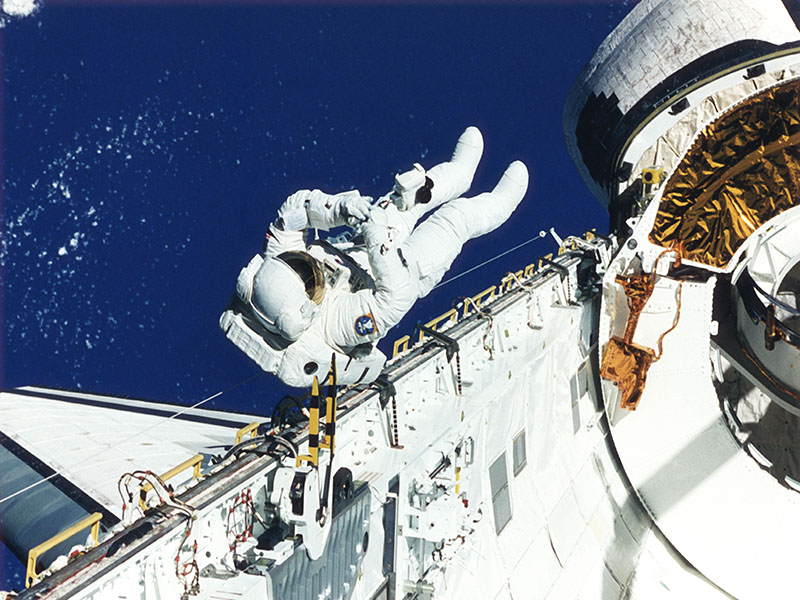Astronauts: Exercise More in Space, Faint Less on Earth

FRIDAY, July 19, 2019 (HealthDay News) -- As Americans mark the 50th anniversary of the Apollo 11 mission and man's first steps on the surface of the moon, a new study offers a solution for a vexing problem that many astronauts experience on their return to Earth.
All the time that astronauts spend floating weightless can trigger fainting and dizziness when they once again feel Earth's gravity, but the new research finds that a two-hour daily workout while in space might eliminate the problem.
The fainting is due to changes in blood flow and pressure caused by being in low gravity, the study authors explained.
"One of the biggest problems since the inception of the manned space program has been that astronauts have fainted when they came down to Earth. The longer the time spent in a gravity-free environment in space, the greater the risk appeared to be," said study senior author Dr. Benjamin Levine. He is a professor of exercise sciences at UT Southwestern Medical Center and director of the Institute for Exercise and Environmental Medicine at Texas Health Presbyterian Hospital in Dallas.
"This problem has bedeviled the space program for a long time, but this condition is something ordinary people often experience as well," Levine said.
The study included 12 astronauts (eight men and four women) who spent about six months in space. All of them did endurance and resistance exercise training for up to two hours a day during their time in space. They also received saline IV fluids when they returned to Earth.
The astronauts' blood pressure was monitored before, during and after their space missions. The findings showed that they had minimal changes in their blood pressure and none of them had dizziness or fainting while doing routine activities during the first 24 hours back on Earth.
The findings were published July 19 in the journal Circulation.
"What surprised me the most was how well the astronauts did after spending six months in space. I thought there would be frequent episodes of fainting when they returned to Earth, but they didn't have any. It's compelling evidence of the effectiveness of the countermeasures -- the exercise regimen and fluid replenishment," Levine said.
This was a small study, so the researchers want to conduct one with a larger number of astronauts, and those who spend longer than six months in space.
"Understanding the physiology of space flight can be helpful for understanding many conditions experienced by non-astronauts. For example, the exercise program our lab developed for the space program is already helping people with a fainting condition known as postural orthostatic tachycardia syndrome (POTS)," Levine said in a journal news release.
"As we prepare to celebrate the 50th anniversary of the Apollo 11 moon landing, it's exciting to think of how our exploration in and of space can lead to important medical advances here on Earth," he added.
More information
The American Academy of Family Physicians has more on fainting.

The news stories provided in Health News and our Health-E News Newsletter are a service of the nationally syndicated HealthDay® news and information company. Stories refer to national trends and breaking health news, and are not necessarily indicative of or always supported by our facility and providers. This information is provided for informational and educational purposes only, and is not intended to be a substitute for medical advice, diagnosis, or treatment.

